| |
|
|
|
The Q’eswachaka (braided bridge) in Canas, Peru.
|
|
|
 |
|
|
|
|
| |
|
The Q’eswachaka, meaning to braid (Q’eswa) and
bridge (chaka), has been re-built every year in June since the
time of the Inca. The entire bridge is built in only 3 days
from
ichu grass to make q’oya, braided ropes. The old bridge
is used to carry the first rope across and then cut down
falling into the river where it rots leaving no trace. |
|
|
| |
Weaving the Bridge at Q’eswachaka:
click the video button above

|
|
|
|
| |
|
|
|
|
The Q’eswachaka Bridge spans the Apurimac River
about 3,600 m (11,800 ft) above sea level in the province of Canas,
Peru
about 160km South of Cusco. The material and construction
techniques have been passed down from generation to generation.
The first bridge was built in the 15th century. |
|
|
|
|
|
|
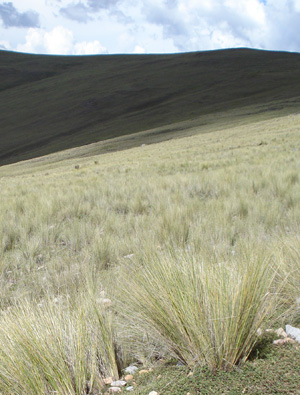 |
|
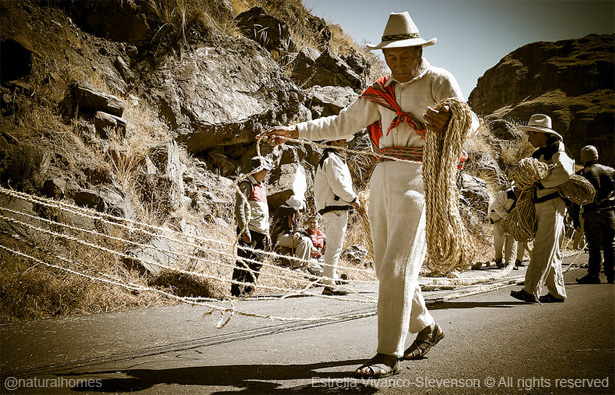 |
|
| |
|
|
|
|
This impressive bridge spans 33m (10ft) at 15m (49
ft) above the river. It’s rebuilt every year as a communal
effort. About 1000 locals from the three villages either side of
the canyon are involved in the construction.
Women and young girls from the villages each make 60m
(196 ft) of rope
from the ichu grass (above left) which is only 40-50cm (1ft 6in) long. Each
of the village ropes are about 1.5cm (1/2 inch) in diameter, 30 of which are
then twisted together into larger ropes about 50m (164 ft) long (above
right). These are pre-stretched (see right) so the bridge doesn't
sag under use.
Three of these larger ropes are then plaited
together to make the final rope, now about 40-45cm (1ft 6in) thick and 40m
(131 ft)
long. Each of these ropes can withstand a load of 1.8 tons.
6 are used in the construction of the bridge, 2 for the handrails
and 4 in the walkway, giving a working load of about 10 tons;
incredibly strong for grass that only grows to about 50cm tall. |
|
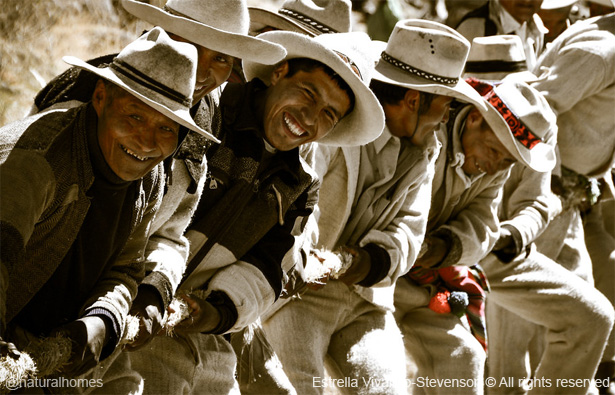 |
|
| |
|
|
|
|
|
|
At each stage of the building process, the
chakarauwaq make offerings of coca leaves, potatoes, and corn to
the apus (spirits of the mountains). When the bridge is finished,
the community gives thanks, celebrating with music,
chuñu (freeze-dried potatoes) and
chicha (a maze drink). |
|
|
|
|
|
|
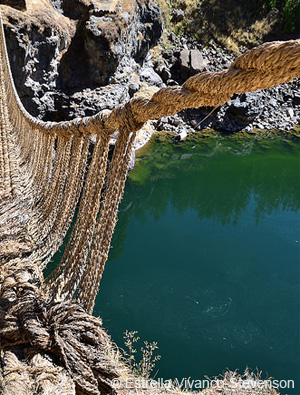 |
|
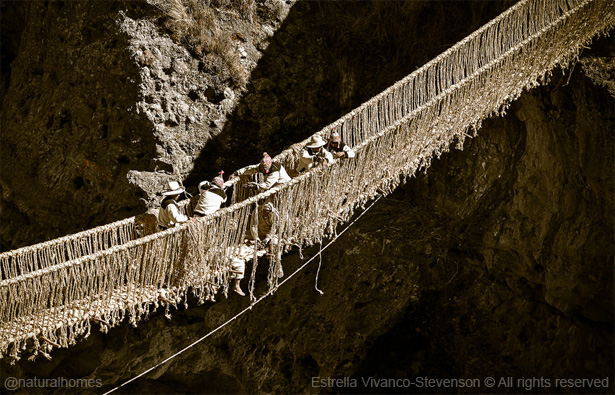 |
|
|
|
|
|
|
|
|
|
|
|
|